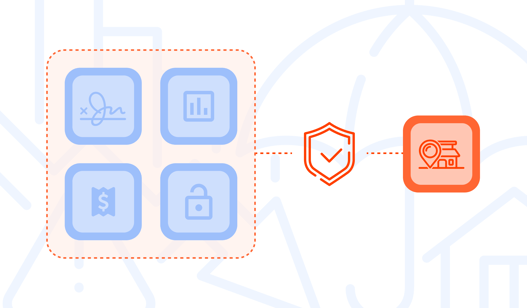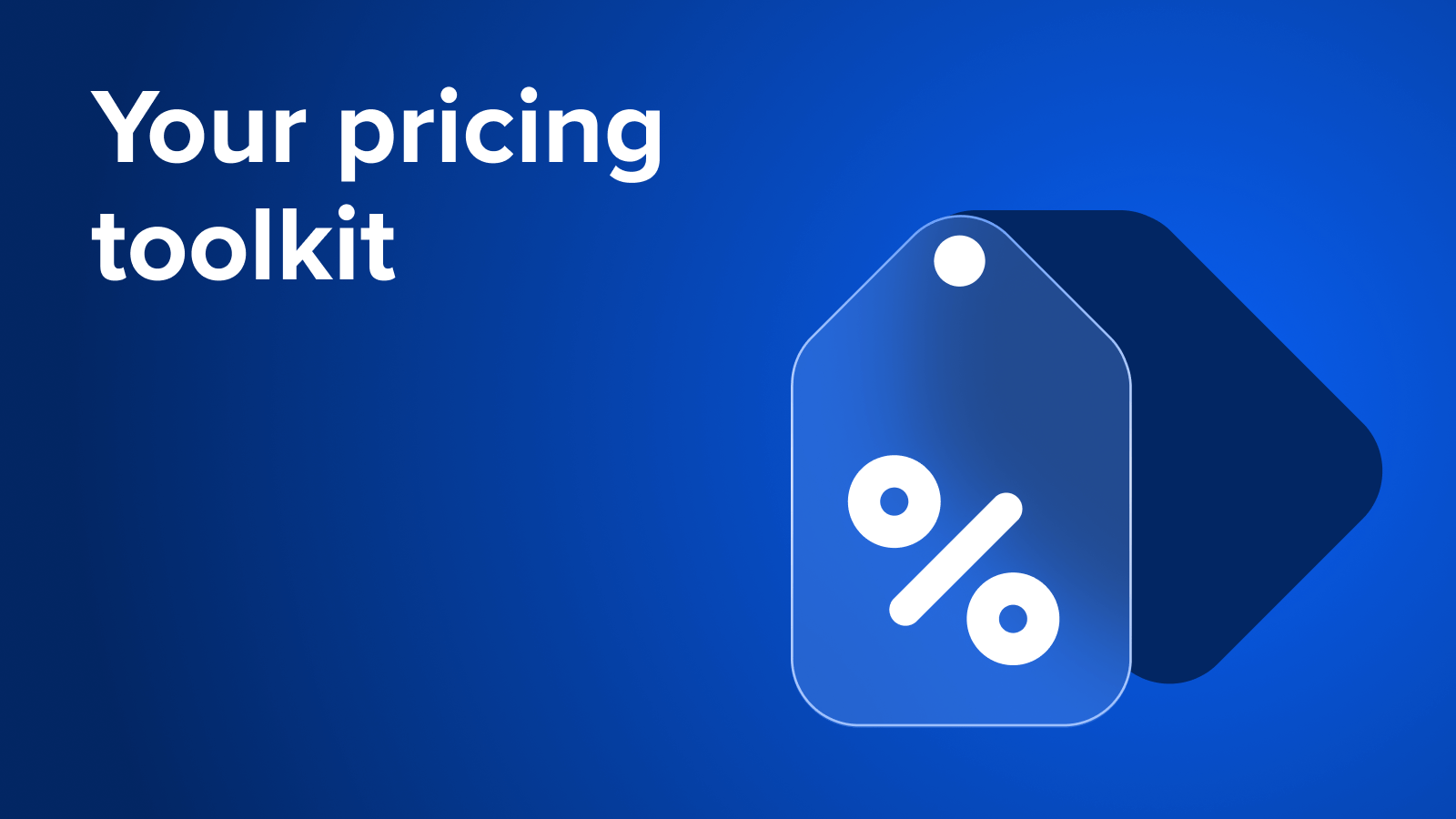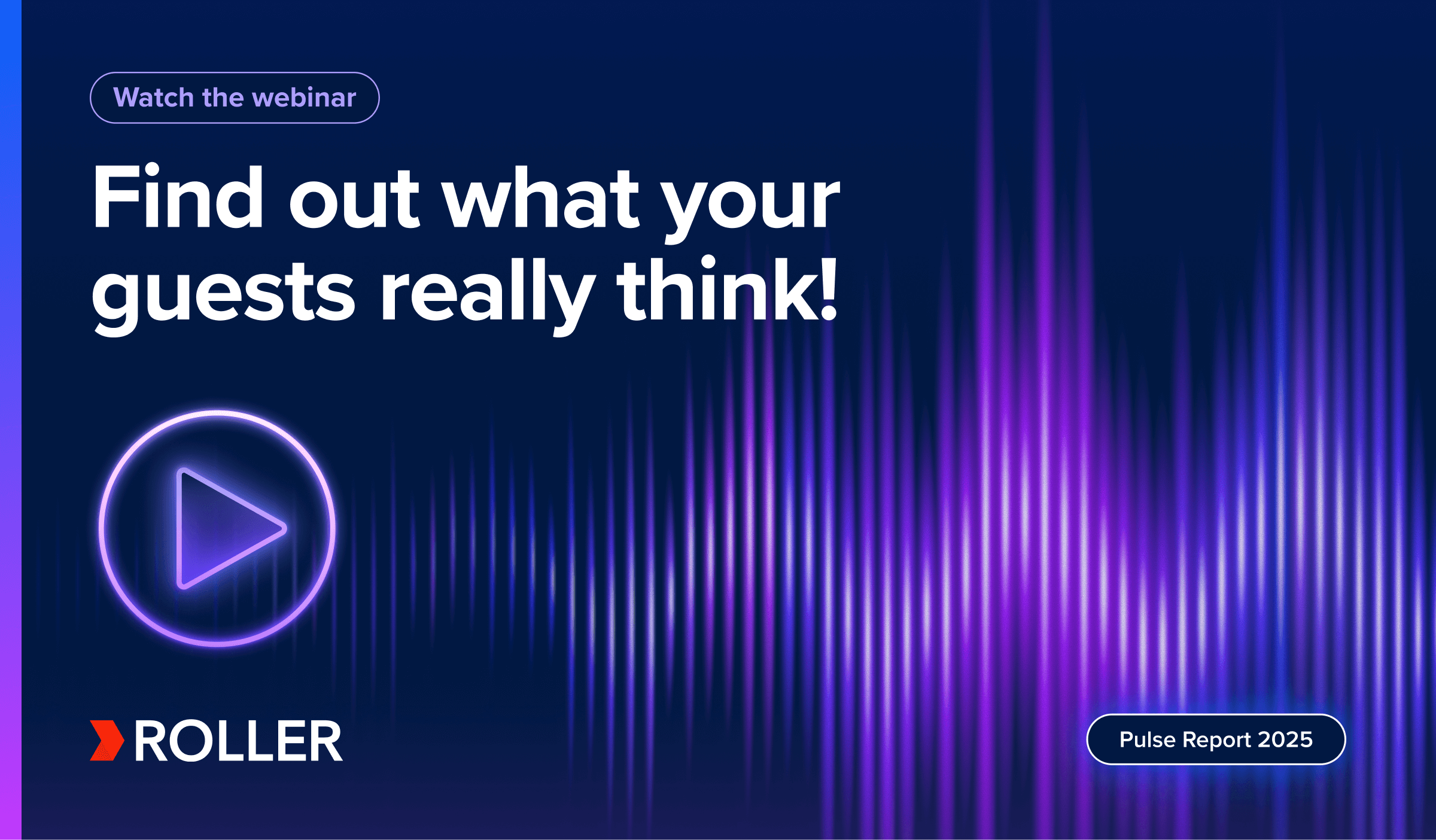How to Manage Risk at Your Attractions Venue
.png?width=820&name=Risk%20Management%20for%20Attraction%20Venues_Social(2_1).png)
Leisure and attractions venues have an element of novelty, and the anticipation of the unknown adds an extra layer of excitement. However, this comes with inherent risks, requiring owners and operators to develop a comprehensive risk management plan to address risks, mitigate their impact, secure the right insurance coverage, and help secure funding, should they need it. It can be daunting for venue operators – especially those opening a venue for the first time.
That’s why, together with our friends at Honan Insurance, we’ve created this comprehensive guide on risk management to help you feel prepared, keep your brand reputation intact, and give you peace of mind that you’ve covered all your bases. We’ll explain how you can demonstrate your track record and prove your venue is a safe bet through the use of technology.
Demonstrate your track record
Experience brings knowledge, expertise, skills, and capability. These collectively contribute to how an insurer views your insurance program and are even more important in what is considered “high-hazard exposures” for leisure and attraction venues.
Tenure in the industry
The more years you have dedicated to honing your skills and understanding the intricacies of the field, the more confident insurers will be in your ability to manage risks effectively. This experience allows you to navigate challenges and make informed decisions, which insurers value when evaluating your insurance program.
Tenure of your business operation
A long-standing presence in the industry indicates stability, resilience, and the ability to adapt to changing circumstances. Insurers appreciate businesses that have demonstrated longevity and have weathered various market conditions.
Evidence of relevant qualifications and experience
Being a member of industry associations or governing bodies showcases your commitment to professional development and adherence to industry standards. It can reassure insurers that you possess the necessary knowledge and expertise to mitigate risks effectively.
Careful growth and expansion
A strategic and thoughtful approach to growth demonstrates your ability to manage risks while seizing opportunities. Insurers are likely to view positively a business that has shown prudent decision-making, effective risk management practices, and a track record of successful expansion.
Of course, not all venue operators have a track record to demonstrate! For those operators looking to open a venue for the first time, some things you can consider are:
- Creating a thorough business plan showing the research you’ve done, including any credentials or qualifications relative to the business
- Controlled growth by not taking unnecessary risks and focusing on quality
- Experienced team members and, if appropriate, appoint a head of Risk Management. You may consider using consultants or a risk advisory board
- Documenting processes and procedures for all aspects of your business
Prove your venue is a safe bet
“Show me, don’t tell me” is the most effective way to present your business in a positive light to insurers. Here are some key ways you can do this.
Waivers can provide protection
Waivers are crucial as they can provide liability protection by outlining inherent risks and obtaining participants’ acknowledgment of those risks. They ensure informed consent by notifying participants about potential dangers, allowing them to make an informed decision about their participation.
Waivers serve as an important risk management tool, demonstrating a business’s commitment to safety and reducing the likelihood of frivolous claims. When implementing or updating a waiver process at your venue, consider the following:
- Having your waiver drafted by legal experts
- Confirming that participants sign waivers before entering the premises
- Keeping waiver records for seven years
ROLLER’s integrated digital waiver software automates and streamlines the sending, signing, and storing of waivers. Not only does this help your venue manage risk, but it saves staff and guests time at check-in and provides a valuable source of guest data for future marketing campaigns.
Read this next: What are Digital Waivers & Why Does Your Venue Need Them
Capacity management is crucial
Capacity management empowers venue operators to maintain a clear overview of attendee numbers, enabling them to make data-driven decisions regarding staffing requirements. It also ensures compliance with venue capacity limits, optimizes the guest experience, and enhances venue operations' overall safety and efficiency.
Know the numbers in your venue at all times
It is crucial for venue operators to clearly understand the number of attendees in their venue at all times. This knowledge enables effective management of resources, ensures compliance with capacity limits, and enhances the overall safety and experience for guests.
Monitor staff-to-guest ratio
Venue operators can enhance safety measures and emergency response preparedness by closely monitoring the staff-to-guest ratio. In an emergency or evacuation, having a balanced ratio of staff members to attendees ensures that proper guidance, assistance, and crowd control can be efficiently provided.
ROLLER’s capacity management functionality helps operators easily view how many guests are at your venue at any point in time to ensure you don’t exceed venue capacity limits. This helps operators make informed staffing decisions to ensure a safe staff-to-attendee ratio across all areas of your venue.
Prioritize equipment & facilities housekeeping
Knowing the origins of your equipment is critical as there can be significant differences in quality and, subsequently safety. We recommend you do the following on an ongoing and regular basis:
- Have a complete and up-to-date inventory of all equipment
- Confirm all equipment is inspected daily with a log
- If required, confirm attendants monitor each piece of equipment when being used through a schedule
- CCTV monitors in place and tapes stored for a minimum of 6 months
- Additional considerations if alcohol is served on premises
Good housekeeping demonstrates a commitment to risk management and loss prevention. When a venue maintains a clean, well-organized, and hazard-free environment, it reduces the likelihood of accidents, injuries, and property damage. Insurers view businesses with good housekeeping practices as lower risk. By effectively managing risks through proper housekeeping, venues showcase their dedication to maintaining a safe and secure environment, which reduces the potential for incidents, claims, and financial losses, ultimately leading to more favorable pricing from insurers.
Implement an extreme weather action plan
Extreme weather conditions are increasing around the world. Experts predict this year will, again, be one of the hottest on record, with severe forest fires, storms, and floods all set to increase.
Preparing your property and fully understanding the risks of extreme weather events in both regional and urban areas, such as storms, fires, and cyclones, is vital. However, you also need an overall strategy to protect your business and its assets to ensure its survival.
- Ensure you have formulated an emergency action plan for your business in the event of extreme weather, such as flooding. Educate your employees so they understand the risks and know how to react.
- Regular maintenance on your property ensures it is as well placed as possible to handle and recover from extreme weather events. Contracting an expert to assess the structural integrity of your dwelling ensures any weak or degrading materials particularly vulnerable to damage can be repaired.
- Clearing your property of refuse, such as fallen branches and bushes, can help to ensure any damage severe storms can cause is limited. This includes securing outdoor items and garaging vehicles and machinery.
Develop a risk management program
A well-managed plan promotes safety for staff and guests, legal compliance, financial stability, reputation preservation, guest satisfaction, and operational efficiency. It helps create a resilient and successful business that can withstand challenges and deliver exceptional guest experiences. Some things to consider for your risk management program include:
- Regular maintenance following manufacturers' guidelines
- Equipment is approved by your local government’s safety standards
- Documentation of risk management manual & procedures and evacuation procedures
- Health and safety procedures are maintained
- Employee safety and training manual is enforced and regularly updated
- Immediate incident reporting procedures
- Daily equipment inspection procedures
Other risks to consider
Event cancellation
Adverse weather conditions, late withdrawals of key personalities, and even political turmoil can all lead to events being canceled or postponed, leaving organizers with significant bills.
As event organizers, there is much to consider in preparing for an event and ensuring that event plans are outlined in detail and executed precisely to ensure its success - on time and within budget.
There are many aspects to juggle, from securing the venue and firming up the program through to consideration of health and safety requirements, conducting client and supplier progress, venue access, and travel logistics.
No matter how rigorous your preparation has been for an event, there is always a residual risk that an unforeseen circumstance could lead to it being abandoned, interrupted, or postponed. Consider the range of things that can go wrong:
- Adverse weather conditions
- Venue closure or accessibility issues
- Outbreak of disease
- Loss of public utilities
- Non-appearance of keynote speakers or performers
- Terrorism or threat of terrorism
- Travel delays
- Non-delivery or failure of equipment
With items such as television and satellite broadcasts, sponsorship, marketing, corporate hospitality, and merchandising costs involved, the financial impact can be significant and immediate for both the client and the event organizer. In addition, there is also potential damage to the reputations of all parties.
An event cancellation insurance policy can provide a tailored solution to suit the individual needs of your clients. While ordinarily, any and all of the above scenarios could be covered under such a policy, the coverage is usually far broader. It may cover an insured event for a multitude of reasons beyond the control of the event organizer.
There is also a lot of flexibility to enable event owners to protect themselves from loss of:
- Irrecoverable costs and expenses (either 100% thereof or specified expenses)
- Gross revenue, thereby protecting any event profit
In addition, many policies will pay for extra expenses incurred by the client to prevent an event's cancellation, interruption, or postponement. Often, the insurer can also provide ‘on-the-ground’ support and risk mitigation advice to event management staff as part of the policy.
There are unique risks and challenges whether you are organizing a sporting event, community event, awards show, convention, concert, or exhibition. Whatever your clients or your own financial interest in an event, it’s possible to arrange a policy to protect against their specific loss concerns associated with that event.
Cyber attacks
Small businesses are particularly vulnerable to cyber-attacks because they have limited resources to dedicate to cyber security, costing an average of $39,000 per event. The top five cyber threats currently facing businesses are:
- Phishing attacks
- Ransomware
- Malware
- Cyber espionage
- Vulnerabilities in web applications
Cyber insurance can respond to claims made by victims of a ransomware attack. This includes:
- Immediate 24/7 access to incident response services following an actual or suspected cyber event
- Reimbursement of ransom payments* and access to specialist ransom negotiators
- Loss of profit related to business interruption following a cyber-attack
- Costs to repair and restore IT systems and data
- Assistance in notifying impacted third parties following a privacy breach, as well as complying with government reporting requirements
Unfortunately, cyber-attacks are a reality in the world we live in, but luckily, there are measures operators can put in place to reduce their risk of a breach and the impact of an attack.
Read this next: 4 Cybersecurity Tips & Best Practices From Our CIO
How technology can help operators manage risk
Technology is pivotal in enhancing venue risk management and insurance by offering innovative solutions that streamline processes, improve risk assessment, and enhance overall operational efficiency. ROLLER helps venue operators do just that with its all-in-one modern platform.
1. Digital waivers assist with liability protection
Waivers are important for providing liability protection, informing participants of risks, and obtaining consent. They demonstrate a commitment to safety and reduce the likelihood of baseless claims. To implement or update a waiver process, consider involving legal experts, ensuring participants sign waivers before entering the premises, and keeping records for a specified duration. ROLLER's digital waiver software automates and simplifies the process, improving risk management, saving time during check-in, and easily storing waivers for future use.
2. Point of sale reports provide valuable insight
Point of sale (POS) reports allow venues to better manage their venue operations, including capacity management. These reports provide detailed information about revenue generated by various aspects of the venue, such as ticket sales, concessions, merchandise, and other services.
By analyzing POS reports, venue managers can gain valuable insights into their revenue streams, identify top-selling items or services, and evaluate the performance of different aspects of their business. This information can help them make data-driven decisions to optimize operations, enhance profitability, and improve the overall customer experience.
One specific application of POS reports is in the insurance renewal process. Insurance companies often require detailed revenue data to assess risk and determine premiums for venue coverage. With ROLLER's POS reports, venues can easily export revenue data in a structured format that insurance companies can review and analyze. This helps to streamline the insurance renewal process by providing accurate and comprehensive information about the venue's financial performance.
Another application of POS reports is understanding specifically who was in your venue at what time, helping with capacity management, and serving as a helpful record should an incident occur.
3. Integrated payments functionality helps prevent fraud and chargebacks
By integrating payment processing directly into the ROLLER platform, venues can streamline operations and reduce the risks associated with fraudulent activities and chargeback disputes.
ROLLER Payments provides an anti-fraud service that is truly unique by combining the operational data of ROLLER and the transactional data from Payments. ROLLER Payments automatically flags the fraudster's unique identifiers to mitigate any further attempts, helping to prevent fraud before it happens rather than leaving you to chase it up afterward. ROLLER’s authentication engine feature can help you reduce the regulatory complexity of working with different issuing banks and regions while enhancing your authorization rates.
Read this next: How To Increase Conversions & Decrease Fraud With ROLLER Payments
4. Staff user permissions add an internal layer of protection
ROLLER offers flexible staff roles and permissions that enable operators to restrict staff access to data and functionality. ROLLER has also created a machine-learning alert system to inform operators of suspicious staff behavior regarding refunds and discounts. Algorithms learn your venue’s patterns and will notify the primary contact on the account via email if any anomalies are detected. Operators can feel confident that ROLLER will draw their attention to any events that should be investigated.
5. Guest feedback can supplement your own observations
As much as you can see potential risks with your own eyes, directly asking your venue guests can uncover additional information you may have missed yourself. ROLLER’s Guest Experience Score allows operators to automatically survey guests after their visit and rate your venue across various topics, including facilities (includes maintenance, parking, music, noise, disability access) and safety (includes cleanliness, hygiene, equipment, supervision).
Get started today
Whether you want digital waivers to help you manage risk with your guests or staff permissions to manage risk internally (or all of the above!), ROLLER is the modern all-in-one solution designed specifically for the needs of the attractions industry.
To learn more about how ROLLER can help mitigate risk at your venue, click here to schedule a demo.
Related articles


What Every Venue Needs to Know About Birthday Parties (from a Parent and a Pro)

2025 Pulse Report Webinar: Operators Unpack the Guest Insights
Enhance your guest experience
Get free education, tips and inspiration to help you run a successful venue.